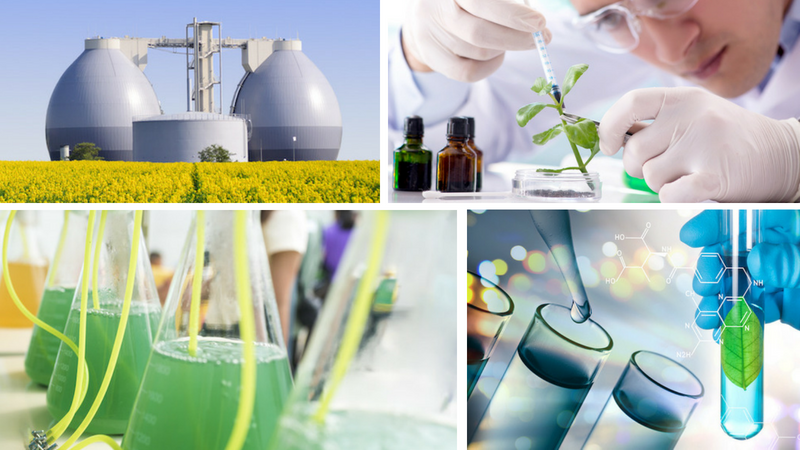White biotechnology, also known as industrial biotechnology, is the application of biotechnology for various industrial purposes through the utilization of microorganisms like bacteria, fungi and microalgae. It involves using microbes or their byproducts like enzymes to produce chemicals, pharmaceuticals, food ingredients and materials in an environment-friendly way. With the rising emphasis on sustainability, white biotechnology is gaining importance in delivering greener alternatives to conventional processes.
Emerging as a cleaner option
Traditional industrial processes are heavily reliant on fossil fuels and petrochemicals which produce harmful emissions and hazardous wastes. On the other hand, white biotechnology provides eco-friendly substitutes by harnessing the power of microbes to convert renewable feedstocks like agricultural residues, household wastes and algae into high-value products in a more sustainable manner. For example, bioethanol can serve as a cleaner gasoline additive produced through fermentation of biomass by yeast. Similarly, bio-butanol has properties that make it preferable to petrochemical-derived butanol for various industrial uses.
The applications of white biotechnology also extend to development of bio-plastics and biopolymers as substitutes for petrochemical-derived plastics. Microbes can metabolize lignocellulosic biomass to produce polyhydroxyalkanoates (PHAs), a family of bioplastics that are biodegradable and have properties matching petroleum-based plastics. PHAs find usage in healthcare packaging, agricultural films and 3D printing materials. Other biopolymers like biobased polyesters, polylactic acid (PLA) and bio-polyethylene are gaining ground in industries like textiles, automotive and construction.
Wide scope of microbial products
Microbes serve as mini factories in synthesizing an array of chemical compounds through specific metabolic pathways. White biotechnology taps into this potential by harnessing microorganisms to manufacture industrial enzymes, organic acids, biofuels, biopolymers, nutraceuticals and other high-value compounds on a commercial scale.
For example, Corynebacterium glutamicum is employed in large-scale production of amino acids like glutamate and lysine used as food additives. Penicillium chrysogenum and other fungi contribute to bulk supplies of antibiotics like penicillin. Lactic acid, one of the most important white biotech products, is produced through fermentation of glucose by Lactobacillus, which finds uses as a food acidulent and in bioplastics manufacture. Similarly, 1,3-propanediol synthesized from glycerol by Klebsiella pneumoniae and Clostridium butyricum serves as a monomer for biopolymers. Acetone, butanol and ethanol are examples of volatile biofuels produced by fermentation.
Furthermore, recent advances have enabled engineering of microbes like E. coli and S. cerevisiae for cost-effective, renewable production of biofuels, biochemicals and biomaterials on an industrial level. New discoveries are further widening the scope of white biotechnology.
Empowering SMEs for growth
Small and medium enterprises (SMEs) have high potential in driving the commercialization of white biotechnology-based processes due to relatively lower capital investments required and shorter times to set up operations. Many government-supported initiatives and incubator programs are facilitating the establishment of SMEs in this space especially in developing countries through low-cost basic infrastructure and funding schemes.
SMEs can enter white biotech segments like developing efficient fermentation techniques, producing microbial enzymes, developing biopolymer materials or extracting high-value compounds from agro-industrial wastes through microbial conversions. For instance, production of lactic acid and citric acid through exploitation of agro-residues presents opportunities for SMEs to emerge as important players and create value from waste. Regional clusters of SMEs conducting collaborative R&D and sharing infrastructure will accelerate technology dissemination. Financing schemes supporting “waste to wealth” ventures can derive maximum socio-economic benefits from white biotech through SMEs.
Addressing challenges ahead
While white biotechnology presents an eco-friendly future, certain challenges still need to be addressed. High capital costs of establishing large-scale fermentation facilities is a constraint, necessitating innovative financing models. Development of robust microbial strains with high product yields remain areas of intensive research.
Other difficulties involve downstream processing of fermentation broths, recovering and purifying the target product. Commercial viability also depends on factors like availability of low-cost raw materials and by-products from other industries which can serve as microbial feeds. Public acceptance is another factor for successful marketability of novel bio-based products. Educating stakeholders and promoting the environmental and economic upsides of white technologies will help overcome barriers to adoption.
With dedicated efforts to resolve such issues, white biotechnology is poised to transform multiple industrial domains through development of renewable, bio-based manufacturing routes in the years to come. Both large corporations and SMEs stand to benefit immensely by participating in this evolving arena of green innovation. Governments also have a role to play through a conducive policy environment that incentivizes private investments as well as public-private partnerships for sustained progress of white biotechnology. Overall, it promises to deliver a biobased economy that is both eco-efficient and economically lucrative for all.




